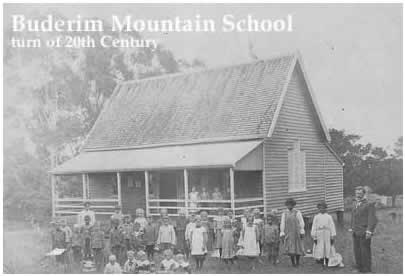From
humble beginnings in 1875 with a student body comprised of 18 pupils, Buderim
Mountain State School now has over 1,000 students and a school culture that
honours its rich community orientated history.
At Buderim Mountain State School we
acknowledge the Traditional Custodians of our school land, the Gubbi Gubbi
people, and recognise their continuing connection to land, water and community.
We pay respect to Elders past, present and emerging.
Buderim
Mountain State School first opened its doors as a provisional school on July 5,
1875, with only 18 pupils. Provisional schools were established by settler communities
whose average student attendance was between 12 and 30 pupils. At that time in
history, the Queensland Board of General Education only built and maintained
primary schools with more than 30 pupils. Therefore the local Buderim school
committee had to provide a suitable building at their own expense.
In
1886 the original school on Panorama Drive was closed, and a new school was
created on its current site in Main Street, Buderim.
In
1925 the school celebrated its Golden Jubilee and past teacher, Mr. TA Fielding
called the roll, and five of the original pupils answered "Present Sir.”
After
World War II, the 1946 school students planted a memorial pine plantation
around the school oval that still exists today. During the war, trench drills
were practiced on the site, and today the morning ANZAC Day service is still
held in this shaded spot, not far from the Buderim War Memorial Gate.
By
1966 the population of Buderim had slowly grown to 1,068 and an increase in
student enrolments proceeded. By 1980 the once-isolated rural community had
almost tripled and more than 4,000 students had passed through the school in its
105 year history.
Fast-forward
to the present day and Buderim Mountain State School is now a thriving school
community with more than 1,000 students in attendance. Current students enjoy
learning in a school environment that’s steeped in rich historical traditions
while accessing state-of-the-art facilities such as a 25-metre swimming pool,
tennis and basketball courts, computer laboratories and much more.
